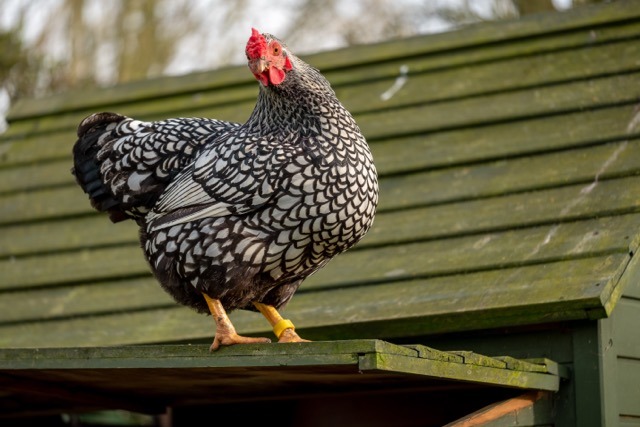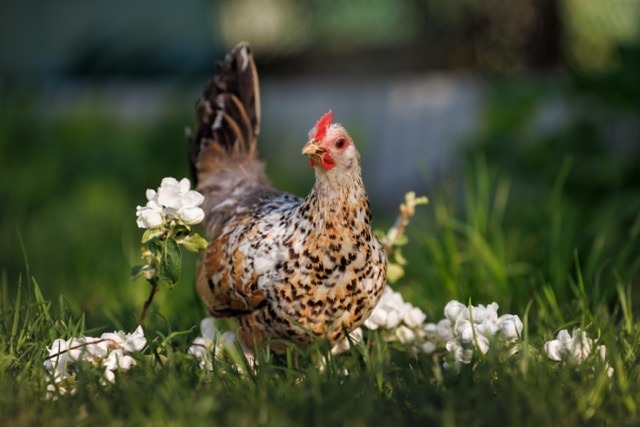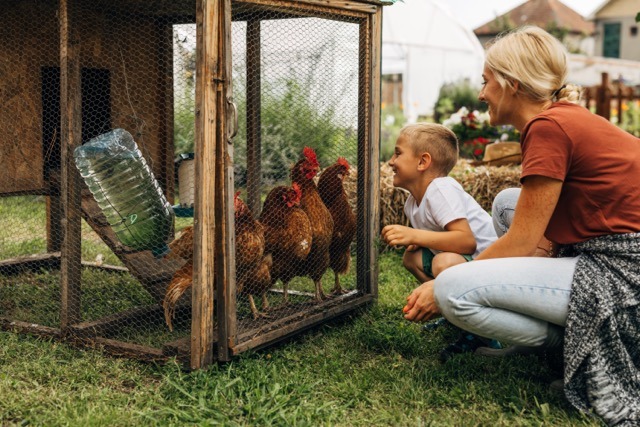
Signs of a Healthy Chicken: What to Look For
Chickens are delightful creatures to have around, whether you’re raising them for fresh eggs, meat, or simply as part of your backyard family. Like any other animal, keeping an eye on their health is essential to ensure a happy and productive flock. But how can you tell if your chickens are in good shape? Here are some key signs of a healthy chicken to look for.

1. Bright Eyes
One of the first signs of a healthy chicken is their eyes. Healthy chickens should have bright, clear eyes that are free from any discharge or cloudiness. A chicken with dull or sunken eyes might be battling an illness or dehydration. Make it a habit to check their eyes regularly for clarity and alertness.
2. Glossy Feathers
Healthy chickens are proud of their plumage! Their feathers should appear clean, glossy, and smooth, with no bald patches (unless they’re molting). A chicken’s feathers act as a protective layer, so any signs of scruffiness, bald spots, or dullness could indicate parasites, poor nutrition, or stress. Regular dust baths and proper nutrition can help maintain their shiny coats.
3. Active and Curious Behavior

Chickens are naturally inquisitive birds. They should be active, scratching at the ground, foraging for food, and displaying normal social behaviors. If a chicken is lethargic, listless, or isolating itself from the rest of the flock, this could be a sign of illness or injury. Be mindful of these changes in behavior, as they are often early indicators of health problems.
4. Healthy Comb and Wattles
The comb (the red crest on top of their head) and wattles (the fleshy parts hanging under the beak) are excellent indicators of health. A healthy chicken’s comb and wattles should be bright red, firm, and smooth. If they appear pale, shriveled, or swollen, it could signal an underlying health issue such as anemia, heat stress, or infection.
5. Steady Weight and Good Muscle Tone
Regularly feeling your chickens can give you a good sense of their health. A healthy chicken should have a full breastbone with firm muscles on either side. If the breastbone feels sharp or if the chicken seems too thin, it might not be getting enough food or could be suffering from an illness. On the other hand, an overweight chicken can have trouble laying eggs and may develop health problems like fatty liver disease.
6. Clean Vent Area
The vent is the opening through which chickens lay eggs and pass waste. A healthy chicken will have a clean vent area, free from any buildup of droppings or mucus. A dirty or swollen vent can indicate digestive issues or even a parasite infestation, so it’s important to check this area regularly.
7. Normal Droppings
Checking your chickens’ droppings is an easy and often overlooked way to monitor their health. Healthy droppings are firm, well-formed, and brown with white caps (which is uric acid, part of their waste). Runny, green, or blood-streaked droppings may indicate worms, an infection, or another health issue. Regularly clean their coop to monitor any changes.
8. Good Appetite
Healthy chickens have hearty appetites and should eagerly eat their feed, scratch grains, and any kitchen scraps you provide. A sudden drop in appetite or refusal to eat is a sign that something is wrong, and it’s time to investigate.
9. Strong, Smooth Legs
Inspect your chickens’ legs and feet to make sure they are clean, smooth, and free from swelling, scales, or sores. Scaly leg mites can cause crusty, irritated skin on the legs, while cuts or sores could be infected. Chickens should also walk and stand steadily without limping or showing signs of pain.
10. Regular Egg Laying
For hens, regular egg laying is a strong sign of good health. While egg production naturally decreases during molting or colder months, hens should otherwise lay eggs consistently. Soft-shelled, misshapen, or no eggs at all may indicate nutritional deficiencies, stress, or illness.
Conclusion

Keeping your chickens healthy requires a mix of observation, good care, and prevention. Regularly inspecting your flock for these signs can help you spot any potential issues early, allowing you to take swift action. Providing a clean living environment, proper nutrition, and plenty of space for foraging are key to maintaining a healthy, happy flock. If you notice anything unusual or concerning, don’t hesitate to consult a vet with experience in poultry.
Your chickens depend on you for their well-being, and by staying vigilant, you’ll ensure that your flock stays healthy, productive, and full of life!
